
Reading Time: 12 minutes
This car maintenance guide is the ultimate resource for car owners looking to take better care of their vehicles. It covers all aspects of car maintenance and repair, including essential systems like the engine, transmission, brakes, and suspension. The guide provides checklists for routine maintenance and common issues. Keep on reading along for tips, and ways to troubleshoot strange noises, rough idling, and poor performance.
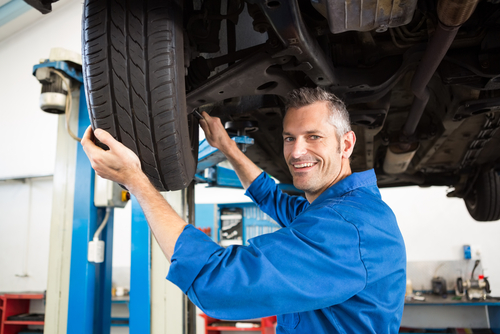
Please don’t underestimate the importance of regular maintenance for extending the life of your vehicle and avoiding costly repairs down the road.
In addition to the technical aspects of car care, we’ll give you practical tips for oil changes, tire care, and battery maintenance.
The Importance of Regular Car Maintenance
Regular car maintenance is essential for keeping your vehicle safe and reliable on the road. Neglecting basic maintenance tasks can lead to costly repairs and even accidents. By staying on top of routine maintenance, you can prevent major issues from occurring.
EXPERT TIP: Routine car maintenance can save you money in the long run.
For example, let’s say you neglect to change your oil regularly. Over time, dirty oil can cause engine components to wear down and eventually fail, leading to a costly repair bill. By simply sticking to a regular oil change schedule, you can extend the life of your engine and avoid expensive repairs.
Regular maintenance also increases the longevity and value of your vehicle. A well-maintained car will likely last longer and hold its value better.
Why Regular Car Maintenance is Important for Safety and Reliability
Beyond saving money and increasing the value of your vehicle, regular car maintenance is critical for safety and reliability on the road. Neglecting maintenance tasks can lead to breakdowns or even accidents, putting you and your passengers at risk.
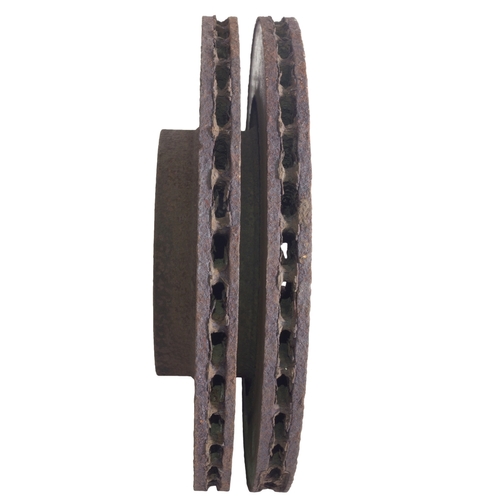
WARNING: BRAKE MAINTENANCE SAVES LIVES
Failing to properly maintain your brakes can lead to decreased stopping power, making it harder to avoid accidents. Neglecting tire care can lead to blowouts, which can cause accidents or leave you stranded on the side of the road.
By staying on top of routine maintenance, you can catch potential issues early and prevent them from turning into major problems on the road. Learn from the FMCSA what’s required in terms of car brakes and vehicle safety standards.
Before reading on, have you ever thought about the true cost of DUI? Read about this and more on our blog.
How Often Should You Perform Car Maintenance?
It’s important to follow the manufacturer’s recommended maintenance schedule for your specific make and model of vehicle. This information can usually be found in your owner’s manual or by contacting your dealership.
There may be certain factors that affect the frequency of maintenance tasks. For example, if you drive in harsh conditions, you may need to perform routine car maintenance tasks more frequently.
Sticking to a regular maintenance schedule has several benefits. It can help you catch potential issues early, which will help prevent breakdowns. It will ultimately save you money in the long run. By taking care of your vehicle with regular maintenance, you can enjoy a safe and reliable ride for years to come.
Car Maintenance Costs | What You Need to Know
Regular car maintenance is an essential part of owning a vehicle. The cost of car maintenance is one of the biggest concerns for many car owners. In this section, we’ll break down the average cost of car maintenance per year. We’ll also talk about the factors that can affect the cost and tips for reducing those costs.
What’s the Average Cost of Car Maintenance per Year?
It’s important to budget for regular car maintenance, just as you would for any other expense. According to Kelley Blue Book, the average annual cost of car maintenance is around $1,200. However, this cost can vary depending on factors such as:
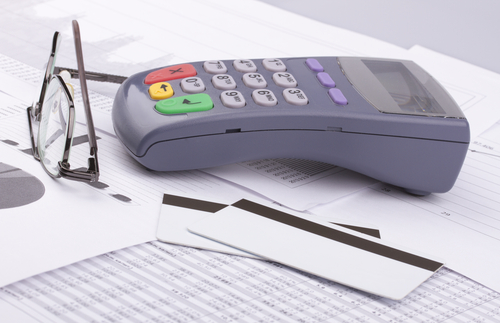
- the make and model of your vehicle,
- its age,
- and how well you’ve maintained it over time.
To give you a better idea of how these costs can add up, here’s a breakdown of the average costs for some common car maintenance tasks:
| Maintenance Task | Average Cost |
| Oil Change | $20 – $75 |
| Air Filter | $20 – $50 |
| Brake Pads | $100 – $300 |
| Battery | $100 – $300 |
| Tires | $500 – $1,000 |
Of course, these are just averages. Your actual costs may be higher or lower depending on your specific situation.
Factors that Affect the Cost of Car Maintenance
Several factors can impact the cost of car maintenance. One of the most significant factors is the make and model of your vehicle. Luxury or high-performance vehicles may require more expensive parts and specialized maintenance. Older vehicles may require more frequent repairs.
How well you’ve maintained your vehicle over time also plays a role in the cost of maintenance.

Neglecting basic maintenance tasks like oil changes and tire rotations can lead to more significant problems down the road, which can be more expensive to repair.
Ready to take a deep dive into the future of road trips and auto transportation? From green technologies to the booming industry revenue and a look at what the future holds, our latest guide covers it all. Don’t miss out on this comprehensive Road Trip Guide that will revolutionize how you think about hitting the open road.
Tips for Reducing Car Maintenance Costs
Car maintenance is necessary, and there are ways to reduce the costs. Here are some tips:
- Follow the manufacturer’s recommended maintenance schedule
- Check and maintain proper tire pressure
- Keep your car clean and waxed to protect the paint and prevent rust
- Learn how to perform basic maintenance tasks yourself, like changing your oil or replacing air filters
- Shop around for the best deals on parts and labor
- Drive cautiously to avoid accidents and wear and tear on your vehicle
Folllow these tips to keep your car maintenance costs under control and avoid costly repairs down the road.
Car Maintenance Checklist: Important Tasks to Keep Your Vehicle Running Smoothly
Regular car maintenance can keep your vehicle running smoothly and prevent costly repairs. Here is a comprehensive checklist of maintenance tasks that every car owner should perform:
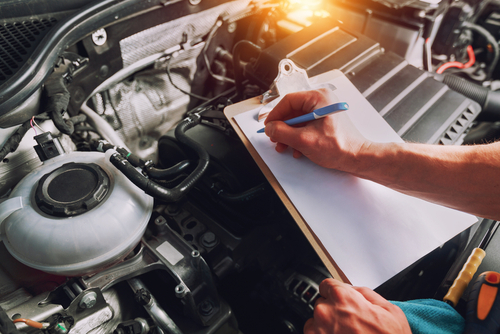
- Measure and refill other fluids such as transmission fluid, power steering fluid, brake fluid, and coolant
- Check the battery and clean the terminals
- Inspect and replace the air filter
- Check the brakes and brake pads
- Inspect and rotate the tires, and check the tire pressure
- Replace windshield wipers as needed
- Check the serpentine belt and replace if worn
- Inspect and replace spark plugs if necessary
- Check the timing belt and replace if needed
- Inspect the suspension and steering components
- Check and refill the windshield washer fluid
- Inspect the lights and replace any bulbs as needed
- Clean the interior and exterior of the car
Performing these tasks regularly can prevent breakdowns and extend the life of your vehicle.
How to Perform Basic Car Maintenance Tasks Yourself
Performing basic maintenance tasks on your car yourself can save you money. Basic tasks such as checking the oil, fluids, and tire pressure can be done easily by yourself with the help of the car owner’s manual.
Some tasks may require the assistance of a professional. This includes changing the oil or replacing the brakes. They have the necessary tools and expertise to do the job correctly.
If you hear strange noises or notice any unusual symptoms while driving, it is best to have a mechanic take a look.
Expert Tip: Keep Track of Maintenance Records
Keeping track of your car’s maintenance records can help you stay on top of routine maintenance and provide documentation for any repairs or maintenance performed. This can be useful when selling the car or filing warranty claims. Keep a file with receipts and a log of all maintenance and repairs, including the date and mileage of the service. This can also help you identify any patterns or recurring issues with your vehicle.
How to Maintain Important Components: Keep Your Vehicle Safe and Efficient
Regular maintenance is key to keeping your vehicle running smoothly and efficiently. This includes the tires, brakes, and engine. By following these tips, you can help extend the life of your vehicle, improve its performance, and ensure your safety on the road.
Maintaining Your Tires for Safety and Longevity
Proper tire maintenance is crucial for keeping your vehicle safe and fuel-efficient. Neglecting your tires can result in decreased handling, reduced gas mileage, and even dangerous blowouts. Regular tire maintenance can help you avoid costly repairs and replacements, extend the life of your tires, and keep you safe on the road.
Learn how to avoid a blowout by visiting our blog.
Tips for Tire Maintenance
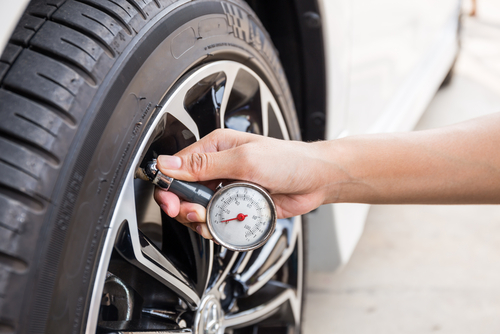
Check tire pressure regularly
Keeping your tires properly inflated can improve gas mileage and prevent uneven wear. Use a tire pressure gauge to check your tires at least once a month, and adjust the pressure as needed.
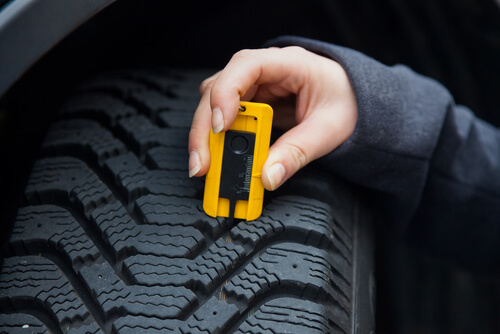
Monitor tread depth
The tread on your tires provides traction and helps prevent skidding. Check the depth of your tire treads regularly, and replace your tires if the tread depth falls below 2/32 of an inch.
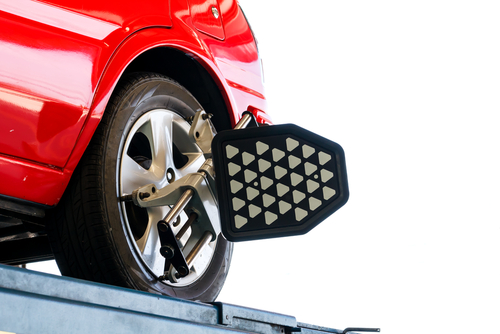
Check wheel alignment
Proper wheel alignment can help your tires wear evenly and improve handling. If you notice your vehicle pulling to one side or your tires wearing unevenly, it may be time to have your alignment checked.
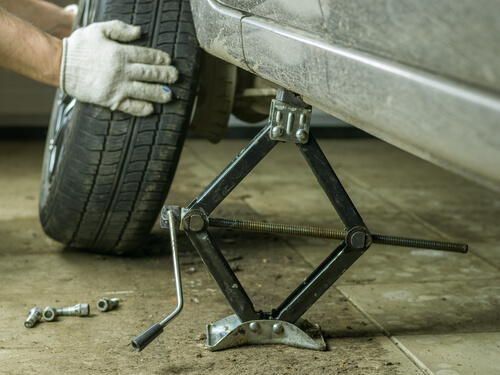
Rotate your tires
Rotating your tires regularly can help prevent uneven wear and extend the life of your tires. Consult your owner’s manual for the recommended rotation schedule for your vehicle.
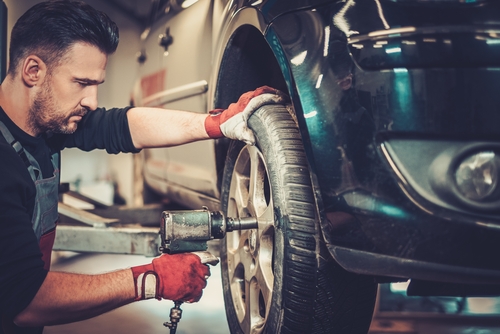
Replace tires when necessary
Even with proper maintenance, tires will eventually wear out and need to be replaced. Look for signs of wear like cracks, bulges, or punctures. If your tires are more than six years old, it may be time to replace them regardless of their condition.
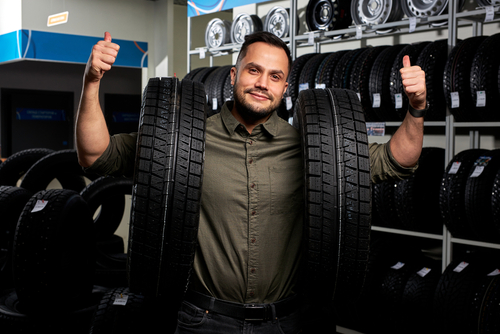
Choose the right tires
When it’s time to replace your tires, choose ones that are appropriate for your vehicle and driving conditions. Consider factors like size, speed rating, and load capacity. Websites like TireRack.com and ConsumerReports.org can provide valuable information and reviews to help you choose the right tires for your needs.
Remember, properly maintaining your tires is essential for safety and can save you money in the long run. Don’t neglect this important aspect of car maintenance.
How to Maintain Your Brakes for Safe Stopping
Proper brake maintenance is crucial for the safety of yourself and others on the road. Neglecting regular maintenance tasks can lead to costly repairs and even dangerous accidents. In this section, we’ll cover the importance of brake maintenance, signs of brake wear, and tips for maintaining your brake system.
Signs of Brake Wear and When to Replace Them
Regular brake maintenance is crucial for safe stopping and preventing costly repairs. It can be challenging to determine when your brakes need attention. Here’s a troubleshooting table to help you recognize signs of brake wear:
| Sign of Brake Wear | What it Indicates | How to Address the Issue |
| Squeaking or squealing noise when braking | Worn brake pads | Replace brake pads |
| Grinding or growling noise when braking | Worn brake pads or rotors | Replace brake pads and/or rotors |
| Vibration or pulsation when braking | Warped rotors | Replace or resurface rotors |
| Soft or spongy brake pedal | Air in the brake lines or worn brake pads | Bleed brake system or replace brake pads |
| Burning smell when braking | Overheated brake pads or calipers | Check brake system and replace parts as necessary |
It’s important to respond promptly to signs of brake wear. Maintaining your brakes can help avoid further damage to your vehicle. It can also ensure your safety on the road. If you’re unsure about the condition of your brakes, it’s always best to consult with a trusted auto repair resource.
Don’t wait until it’s too late | Prioritize your safety by maintaining your brakes regularly.
At Nationwide Auto Transportation, we recommend seeking assistance from a reputable auto repair shop or brake specialist for brake replacement. You can find a trusted mechanic in your area by searching through resources like the AAA Approved Auto Repair directory or checking reviews on sites like Yelp or Google.
Tip: Keep track of your brake maintenance records to ensure that your brake system is in good condition and to help diagnose potential issues before they become major problems.
Proper brake maintenance is essential for safe stopping and preventing costly repairs. By recognizing signs of brake wear, performing regular inspections and fluid changes, and using high-quality brake components, you can keep your brake system in good condition and ensure the safety of yourself and others on the road.
How to Maintain Your Car’s Engine for Performance and Reliability
Regular engine maintenance is crucial to keep your vehicle performing at its best and ensure its longevity. Neglecting your engine can result in costly repairs and a decrease in performance. You should address check engine lights and other warning signs as soon as they appear. Your speedy response can help to prevent further damage to your engine.
To maintain your engine’s performance and reliability, here are some essential tips:
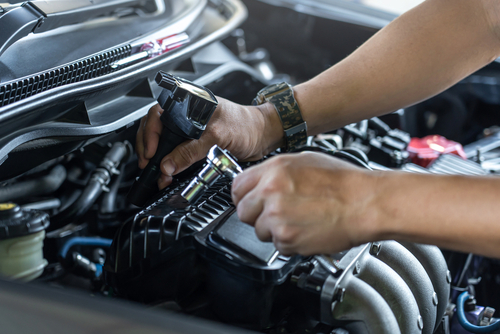
- Check oil levels regularly and change oil and oil filters according to the manufacturer’s recommendations.
- Replace spark plugs, batteries, air filters, air conditioning, and windshield wipers at recommended intervals.
- Inspect and replace serpentine belts when needed.
- Use the correct fuel grade recommended by your vehicle’s manufacturer.
- Follow the recommended maintenance schedule in your owner’s manual.
When to Seek Professional Help with Car Maintenance
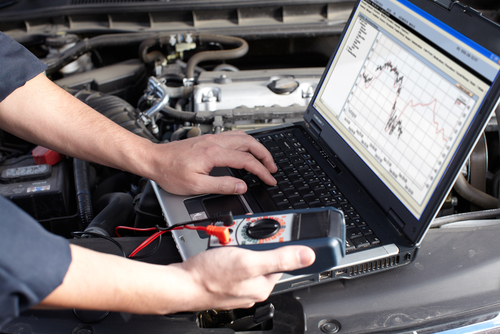
Some engine maintenance tasks may require the help of a professional mechanic. If you notice any unusual sounds or vibrations, smell strange odors or experience a significant decrease in performance, it’s essential to seek professional help. Your mechanic can diagnose the problem and provide the necessary repairs to keep your engine running smoothly.
Regular engine maintenance is key to keeping your vehicle in top shape.
Frequently Asked Questions About Car Maintenance
As a car owner, you may have many questions about car maintenance. It’s important to keep your vehicle in good condition to ensure safety, reliability, and longevity. Here are some frequently asked questions about car maintenance with answers to help you keep your car running smoothly.
How long does car maintenance take?
- The time it takes to perform car maintenance tasks varies depending on the type of service needed. Some tasks, such as an oil change or tire rotation, can be done in less than an hour. More complex tasks, such as a transmission fluid flush or a brake system overhaul, can take several hours.
What maintenance does an electric car need?
- Electric cars have fewer components that require maintenance than traditional gasoline-powered cars. However, they still require regular maintenance, such as tire rotations, brake inspections, and battery checks. It’s important to follow the manufacturer’s recommended maintenance schedule for your electric car – and pay attention when winter rolls around.
Why does my car say “maintenance required”?
- Many modern cars are equipped with a maintenance reminder system that alerts the driver when it’s time for scheduled maintenance. This system is designed to help you keep up with routine maintenance tasks and avoid more costly repairs down the road.
What maintenance does my car need?
- Your car’s maintenance needs will vary depending on the make and model, as well as the mileage and age of the vehicle. Common maintenance tasks include oil changes, tire rotations, brake inspections, and fluid checks. Consult your owner’s manual or a trusted mechanic for a complete list of recommended maintenance tasks.
How much is car maintenance per month?
- The cost of car maintenance per month varies depending on the make and model of the vehicle, as well as the frequency of maintenance tasks. On average, car owners can expect to spend around $100-$150 per month on routine maintenance, such as oil changes and tire rotations.
How much does car maintenance cost?
- The cost of car maintenance depends on the type of service needed and the make and model of the vehicle. On average, car owners can expect to spend around $1,200 per year on routine maintenance tasks such as oil changes, tire rotations, and brake inspections.
What is a car maintenance schedule?
- A car maintenance schedule is a list of recommended maintenance tasks and the frequency at which they should be performed. This schedule is provided by the manufacturer and is designed to help you keep your vehicle in good condition and prevent costly repairs.
How do I reduce car maintenance costs?
- There are several ways to reduce car maintenance costs, including performing routine maintenance tasks yourself, shopping around for the best prices on parts and services, and following the manufacturer’s recommended maintenance schedule.
By addressing these frequently asked questions, you can better understand the importance of car maintenance and how to keep your vehicle running smoothly.
Regular car maintenance is crucial to ensure your vehicle stays safe and reliable on the road. With the tips and information provided in this article, you can follow a regular maintenance schedule and address warning signs promptly, which will prevent costly repairs in the future.
Ship or Drive?
If you’re planning a long-distance move or road trip, it’s worth considering the wear and tear that driving your car across the country can cause. This can be expensive in terms of gas and maintenance costs. It can also put unnecessary strain on your vehicle. That’s where Nationwide Auto Transportation comes in – we offer a convenient and affordable solution for shipping your car to your destination, without the hassle and expense of driving.
Did you know that our clients save an average of 46% on shipping costs compared to driving their car themselves? Plus, our expert team handles all the logistics, so you can sit back, relax, and enjoy the journey without worrying about your vehicle.
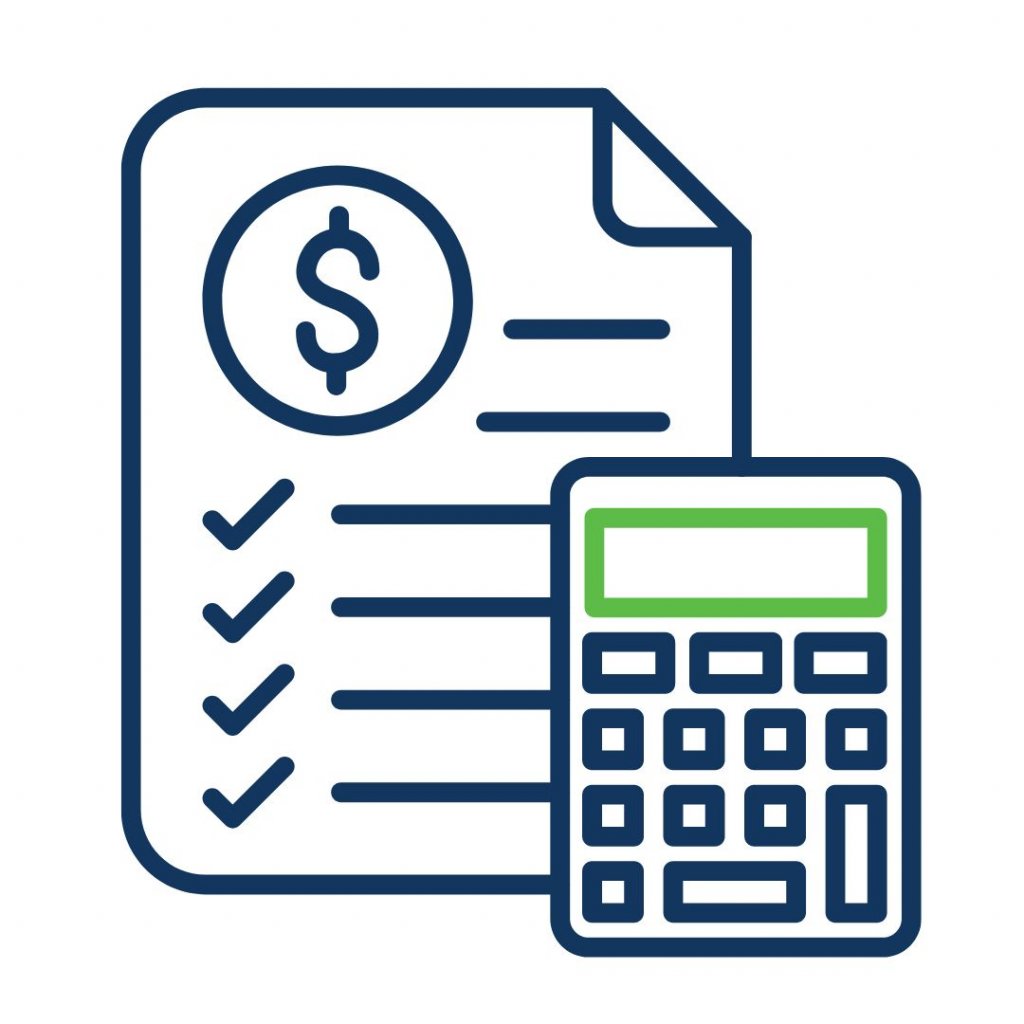
Get 20% OFF Car Shipping
If you’re in the process of moving cars, consider Nationwide Auto Transportation. We offer safe and reliable car shipping services across the country. Rely on our team to find the best solution for your unique needs.
Check out our car shipping quote calculator and get 20% OFF your first shipment.



